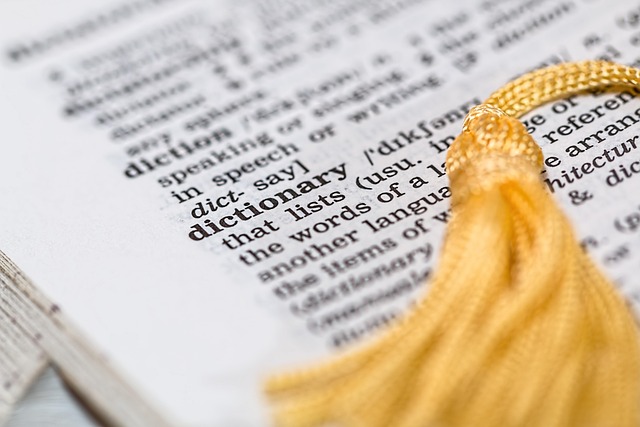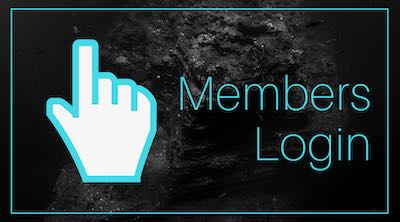Introduction
Every year on 8th September, the world comes together to celebrate International Literacy Day (ILD), an occasion established by UNESCO in 1966 to highlight the importance of literacy as a basic human right and a cornerstone of sustainable development. As we approach International Literacy Day 2025, the global community faces both progress and challenges. Literacy rates have steadily improved worldwide, yet millions of people—particularly women, children, and marginalised groups—still lack access to basic reading and writing skills.
This year, the theme of International Literacy Day 2025 focuses on the transformative power of literacy in shaping resilient, inclusive, and knowledge-driven societies. With the rise of artificial intelligence, digital transformation, and the urgent need for lifelong learning, the conversation around literacy has expanded beyond traditional reading and writing—it now encompasses digital literacy, financial literacy, media literacy, and climate literacy.
In this article, we will explore:
-
The history and significance of International Literacy Day
-
Global literacy statistics in 2025
-
The theme of International Literacy Day 2025
-
The role of digital and AI literacy
-
Case studies of successful literacy programmes
-
How different countries, including the UK, are marking the day
-
The importance of literacy in achieving the UN Sustainable Development Goals (SDGs)
-
Ways individuals, schools, and communities can get involved
The Origins of International Literacy Day

International Literacy Day was first declared at the 14th session of UNESCO’s General Conference in 1966, with the first celebrations taking place in 1967. Its creation stemmed from the recognition that literacy is more than just an educational goal—it is a tool for empowerment.
The day was designed to:
-
Raise awareness of the global literacy crisis.
-
Encourage governments and NGOs to prioritise education.
-
Promote literacy as a driver of empowerment, equality, and development.
UNESCO has consistently emphasised that literacy is not only about learning to read and write but also about enabling individuals to fully participate in society and shape their futures.
Global Literacy in 2025: Where Do We Stand?
Progress Achieved
According to UNESCO’s latest data in 2025:
-
Over 90% of young people (15–24 years old) worldwide are now literate.
-
Global adult literacy rates stand at 86%, a significant increase from 76% in 1990.
-
Countries in Asia and Latin America have made remarkable strides in literacy expansion, with near-universal primary education in many regions.
Ongoing Challenges
Despite this progress:
-
771 million adults globally still lack basic literacy skills.
-
Two-thirds of illiterate adults are women, highlighting gender disparities.
-
Conflict-affected regions such as parts of Sub-Saharan Africa, Afghanistan, and Syria continue to struggle with access to education.
-
Digital divides mean that millions lack access to technology-driven learning opportunities.
The Theme of International Literacy Day 2025
UNESCO has dedicated International Literacy Day 2025 to the theme:
“Literacy for a Sustainable and Inclusive Future.”
This theme reflects three major global priorities:
-
Sustainability – Literacy is crucial in tackling climate change, sustainable agriculture, and eco-friendly economic growth. Without the ability to understand complex issues, communities are left vulnerable.
-
Inclusion – Ensuring that marginalised communities, refugees, indigenous peoples, and people with disabilities have access to education is vital for reducing inequality.
-
Digital Transformation – In an age dominated by artificial intelligence, digital literacy has become just as important as traditional reading and writing.
By focusing on these pillars, International Literacy Day 2025 urges countries to look beyond basic literacy and embrace multidimensional literacies that prepare citizens for modern challenges.
Literacy in the Digital Age: AI and Beyond
One of the most pressing issues in 2025 is the role of artificial intelligence (AI) in reshaping education and literacy. While AI offers enormous opportunities for personalised learning, there are concerns about accessibility and ethical use.
Benefits of AI in Literacy Development
-
Adaptive learning platforms can provide tailored lessons for learners of all ages.
-
Text-to-speech and translation tools help break down language barriers.
-
AI-powered tutors make literacy education available even in remote areas.
Risks and Challenges
-
Over-reliance on technology may create new inequalities for those without internet access.
-
AI-generated misinformation increases the need for media and information literacy.
-
Ethical concerns about data privacy and bias in AI-driven education systems.
Thus, AI literacy—understanding how AI works, its benefits, and its risks—has become a key part of the literacy conversation in 2025.
Case Studies: Literacy Success Stories
1. Bangladesh’s Community Learning Centres
Bangladesh has established community-based learning hubs where women and children can access reading classes, vocational training, and digital skills. These centres have helped reduce illiteracy rates in rural areas significantly.
2. Kenya’s Mobile Libraries
In Kenya, mobile camel libraries bring books to children in remote villages. Combined with digital tablets, these initiatives ensure learning continues even in hard-to-reach communities.
3. The UK’s National Literacy Trust
In the UK, the National Literacy Trust continues to play a crucial role in addressing literacy gaps, particularly among disadvantaged children. In 2025, its focus on digital storytelling has helped boost creativity and engagement.
International Literacy Day 2025 in the UK
In the UK, International Literacy Day 2025 is being celebrated through a wide range of events:
-
Schools across the country are holding book fairs, storytelling sessions, and writing workshops.
-
Libraries are organising community events focusing on digital and media literacy.
-
Charities like World Literacy Foundation and National Literacy Trust are running campaigns to raise awareness of literacy inequalities in the UK, particularly in areas of high deprivation.
-
Businesses are collaborating with education charities to provide free e-books, audiobooks, and literacy workshops.
Literacy and the UN Sustainable Development Goals (SDGs)
Literacy underpins many of the 17 UN Sustainable Development Goals. For instance:
-
SDG 4 (Quality Education): Literacy is a fundamental part of lifelong learning.
-
SDG 5 (Gender Equality): Closing the literacy gap between men and women is essential for empowerment.
-
SDG 8 (Decent Work and Economic Growth): A literate workforce is vital for innovation and productivity.
-
SDG 13 (Climate Action): Literacy enables individuals to understand and respond to climate challenges.
Without literacy, achieving the SDGs by 2030 would be impossible.
The Broader Impact of Literacy
Economic Growth
A literate population leads to higher employment rates, better wages, and greater innovation.
Health and Wellbeing
Studies show that literacy reduces infant mortality rates and improves healthcare outcomes because individuals can understand medical information.
Civic Participation
Literacy empowers people to vote, engage in debates, and hold governments accountable.
Gender Equality
Educating girls not only improves literacy rates but also reduces poverty, delays early marriage, and increases economic independence.
How You Can Get Involved in International Literacy Day 2025
-
Volunteer: Support local literacy programmes or libraries.
-
Donate: Contribute to organisations like the National Literacy Trust, World Literacy Foundation, or Room to Read.
-
Promote Literacy Online: Use hashtags like #LiteracyDay2025, #ReadForChange, and #LiteracyForAll.
-
Host Events: Organise a book swap, storytelling session, or literacy fundraiser in your community.
-
Support Children: Encourage reading at home with your children, ensuring they develop a lifelong love for learning.
Looking Ahead: Literacy Beyond 2025
As we move further into the digital age, the definition of literacy will continue to evolve. By 2030, experts predict that AI literacy, coding skills, and critical thinking will be considered as essential as traditional literacy was in the 20th century.
International Literacy Day 2025 is not just a reminder of how far we’ve come, but also a call to action: to build more inclusive, innovative, and sustainable approaches to learning for all.
Conclusion
International Literacy Day 2025 is a vital moment for reflection and action. While the world has made impressive strides in boosting literacy rates, millions remain excluded. With the challenges of digital inequality, misinformation, and global crises, the need for comprehensive literacy strategies has never been greater.
By focusing on sustainability, inclusion, and digital transformation, this year’s celebrations highlight that literacy is the foundation of empowerment, equality, and resilience. From grassroots projects in rural villages to AI-driven platforms in urban schools, literacy continues to shape lives, communities, and futures.
As UNESCO reminds us, literacy is not a privilege but a right—and International Literacy Day 2025 is our opportunity to ensure that right is realised for everyone, everywhere.


















